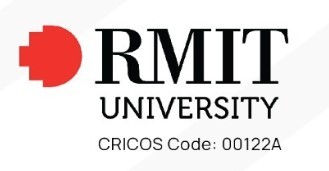
Master of Statistics and Operations Research


Overview
Duration
FULL-TIME 2 YEARS
FULL-TIME 2 YEARS
Scholarship
YES
YES
Fee
AU$39,360
AU$39,360
Intake
FEBRUARY, JULY
FEBRUARY, JULY
- The Master of Statistics and Operations Research will develop your knowledge of statistical and operations research methodologies.
- You’ll combine a theoretical foundation with practical applications of current techniques employed by practising engineers, scientists and other professionals in industry, research, consulting, teaching and business.
- This is achieved using statistical software accompanied by an in-depth understanding of the statistical processes involved.
- You will be particularly knowledgeable, creative and critical in the sense of how you interpret and analyse data. You will also be equipped with the ability to apply knowledge to solve a wide range of real-world problems.
- You’ll be exposed to a wide variety of analytics tools including R, SQL, SAS Enterprise Guide, SAS Enterprise Miner, Python, Java, CPLEX, Gurobi and Arena.
- The program includes an industry project component and/or minor thesis which will develop your consulting and research skills.
- Based on your previous studies you may be eligible for exemptions that may shorten your program duration by up to one year full-time.
Inquire Now
Career
> Demand for statistical and operations research skills is growing in a data-driven world.
> Graduates are employed by a variety of scientific, commercial and government enterprises, most commonly as data scientists, statisticians, business analysts, consultants, modellers and researchers.
Entry requirement
- To study this course you will need to complete one of the following English proficiency tests:
- IELTS (Academic): minimum overall band of 6.5 (with no individual band below 6.0)
- TOEFL (Internet Based Test - IBT): minimum overall score of 79 (with minimum of 13 in Reading, 12 in Listening, 18 in Speaking and 21 in Writing)
- Pearson Test of English (Academic) (PTE (A)): minimum score of 58 (with no communication band less than 50)
- Cambridge English: Advanced (CAE): minimum of 176 with no less than 169 in any component.
Popular Courses
Start your journey with landmark today!
Find your perfect course
Answer a few questions and
our course matcher will do the rest
Head Office
Level 5, IT Plaza
Kamaladi, Kathmandu
Tel: +977 14542781, 9845566225
E-mail: info@landmarkedu.com
Kamaladi, Kathmandu
Tel: +977 14542781, 9845566225
E-mail: info@landmarkedu.com
Sydney office
Suite 1 Level 1,
46 Macquarie Street,
Parramatta, NSW
Tel: +61 415 122 814
46 Macquarie Street,
Parramatta, NSW
Tel: +61 415 122 814
Branch office
Sahidchowk, Chitwan
Tel: 056-590825
Tel: 056-590825
Mahendrachowk, Biratnagar
Tel: 021-590828
Tel: 021-590828
Level 2, Milanchowk, Butwal, Rupandehi
Tel: 977-71-591694
Tel: 977-71-591694
© Landmark Education. All rights reserved.


